Results
-
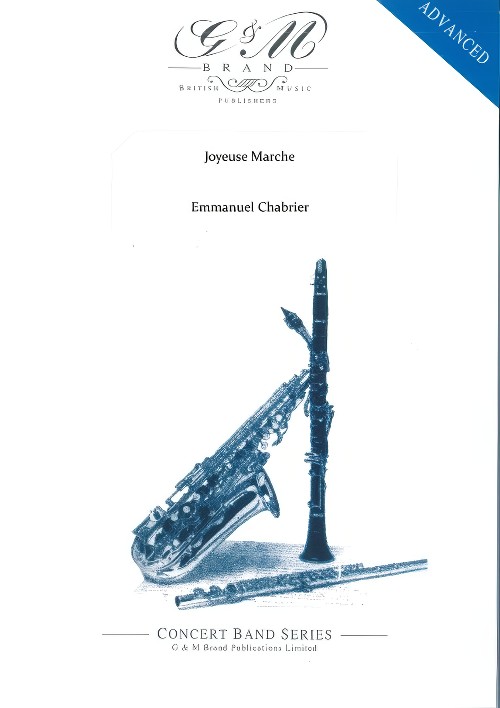 £74.95
£74.95Joyeuse Marche (Concert Band - Score and Parts) - Brand, Geoffrey
In spite of displaying remarkable musical gifts Chabrier (1841-1894) was sent by his father to study law and in due course, having taken a law degree, went to work in his native French Ministry of the Interior, stay there for eighteen years. During the whole of this time he was developing his real interests in music and painting, including composing operettas and music for the piano. Following a holiday in Spain in 1883, Chabrier wrote a rhapsody for orchestra based on Spanish tunes he had heard. This became Espana; it achieved immediate acclaim and is still his most performed work. Joyeuse Marche (originally called Marche Francaise) was written in 1888. It exudes Chabrier's rhythmical exuberance, spontaneity and wit, bringing pleasure and joy to performers and listeners alike. Truly a march which lives up to its title.
Estimated dispatch 7-14 working days
-
 £14.95
£14.95Joyeuse Marche (Concert Band - Score Only) - Brand, Geoffrey
In spite of displaying remarkable musical gifts Chabrier (1841-1894) was sent by his father to study law and in due course, having taken a law degree, went to work in his native French Ministry of the Interior, stay there for eighteen years. During the whole of this time he was developing his real interests in music and painting, including composing operettas and music for the piano. Following a holiday in Spain in 1883, Chabrier wrote a rhapsody for orchestra based on Spanish tunes he had heard. This became Espana; it achieved immediate acclaim and is still his most performed work. Joyeuse Marche (originally called Marche Francaise) was written in 1888. It exudes Chabrier's rhythmical exuberance, spontaneity and wit, bringing pleasure and joy to performers and listeners alike. Truly a march which lives up to its title.
Estimated dispatch 7-14 working days
-
 £69.99
£69.99Prince of Denmark's March (Concert Band - Score and Parts) - Clarke, Jeremiah - Sparke, Philip
Jeremiah Clarke (c. 1674-1707) belongs to the generation of English composers following that of Henry Purcell. Not much is known about his early life, but by 1685 he was a chorister of the Chapel Royal, a group of liturgical musicians attached to the court. He held the post of organist at Winchester College from 1692 but later returned to London as Master of the Choristers at St Paul's Cathedral. The Prince of Denmark's March is perhaps his best-known work and was originally written for harpsichord, although Clarke later included it in a collection of pieces for wind instruments.Duration: 3:00
Estimated dispatch 7-14 working days
-
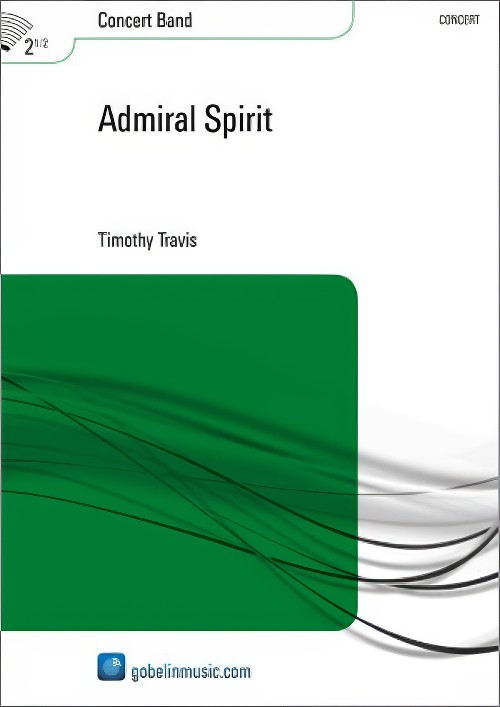 £118.99
£118.99Admiral Spirit (Concert Band - Score and Parts) - Travis, Timothy
The 'Admiral Spirit' is the pride of the Navy. The ship is at sea, there is no wind, the sun is shining. The crew are busy piloting the ship into port in prime condition. The admiral himself will inspect the vessel.The first movement (Allegro Con Spirito) gives musical expression to the majestic ship and its toiling crew.In the second movement (Andante), the ship sails into port. It has been polished and technically everything is in order. The admiral will be proud when he inspects the ship.Third movement (Allegro Molto): the captain and his crew are nervous (modulations) while working at the 'finishing touch'. The Navy Band is ready to receive the admiral !. He may be proud of his flagship.Duration: 6:30
Estimated dispatch 7-14 working days
-
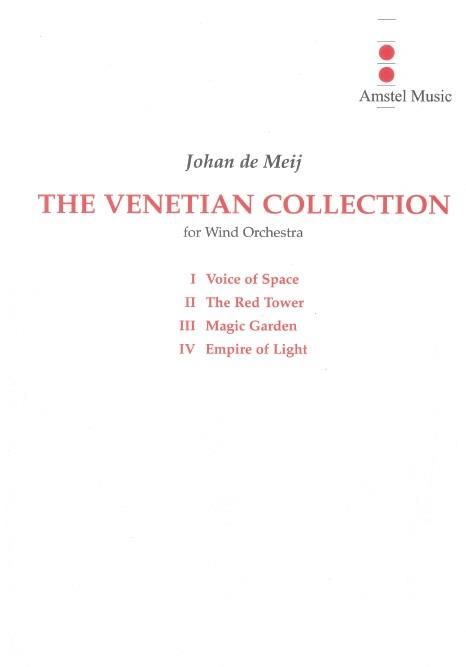 £499.00
£499.00The Venetian Collection (Concert Band - Score and Parts) - De Meij, Johan
The Venetian Collection by Johan de Meij consists of four movements which are all a musical reflection of the four paintings of the same names from the Peggy Guggenheim Museum in Venice.Voice of Space is the first movement of The Venetian Collection. The picture on which the music is based on was painted by the Belgian surrealist artist Ren? Magritte. Along with Ensor, Permeke and Delvaux he was one of the most important painters of the 20th century.The Red Tower was inspired by the painting of the same name (La Torre Rossa) by the Italian artist Giorgio de Chirico, and was awarded first prize in the International Composition Contest in Oman. One of the towers of the mediaevalwalls of the Italian town of Soncino (home to the band for whom Johan de Meij wrote the work for) shows a remarkable resemblance to the tower in the work of De Chirico. Magic Garden contrasts starkly with the other movements of the cycle. As with the painting, Johan de Meij has tried to reflect the colourful, naive dream world of Paul Klee. The transparent texture, in which the woods play an important role, makes a striking impression throughout this serene movement.Empire of Light is also based on a work by Ren? Magritte. He was a versatile and productive artist producing over 1100 paintings and 700 gouaches. Johan de Meij used the painting Empire of Light as his theme for the last movement of his Venetian Collection. Duration: 35.00
Estimated dispatch 7-14 working days
-
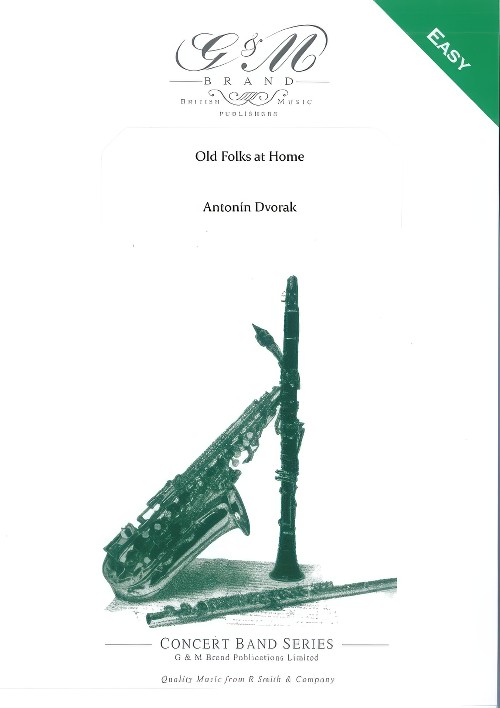 £49.95
£49.95Old Folks at Home (Concert Band - Score and Parts) - Dvorak, Antonin - Leidzen, Erik
Could Dvorak have known that he was writing a standard piece for young bands when he created this piece? This rendition is ideal for a variety of occasions - concerts, graduation ceremony, and special events.
Estimated dispatch 7-14 working days
-
 £9.95
£9.95Old Folks at Home (Concert Band - Score only) - Dvorak, Antonin - Leidzen, Erik
Could Dvorak have known that he was writing a standard piece for young bands when he created this piece? This rendition is ideal for a variety of occasions - concerts, graduation ceremony, and special events.
Estimated dispatch 7-14 working days
-
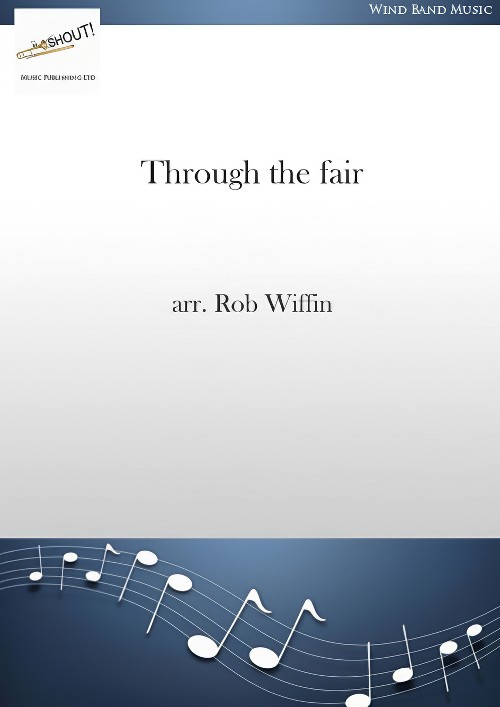 £36.95
£36.95Through the fair (Vocal Solo with Concert Band - Score and Parts) - Wiffin, Rob
The traditional Irish folk song set for voice and band. This haunting melody tells the sad story of two Irish lovers. The boy fell in love when he saw her as she 'moved through the fair'. Despite their differing social standing they received parental permission to marry but the girl did not return. In the closing verse of the song he dreams of her moving through the fair but realises that she has, in fact, died. This arrangement is for voice and band and featured on the RAF Massed Bands Tour 2000 and was recorded on Festival of Music 2000 Polyphonic QPRM 136D.Duration: 3.29
Estimated dispatch 7-14 working days
-
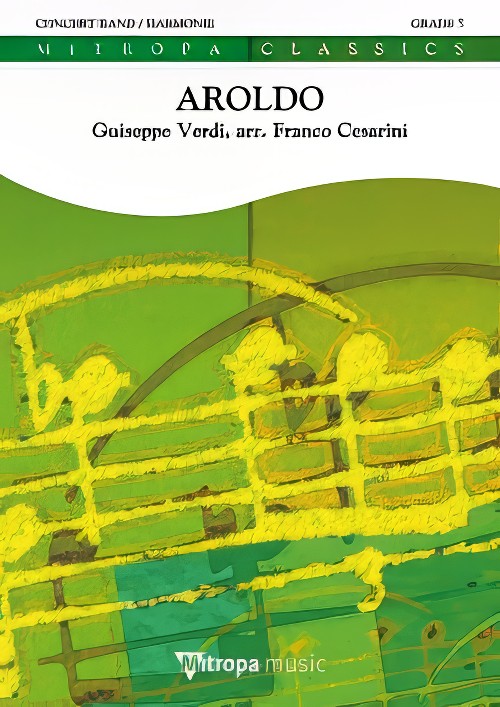 £139.99
£139.99Aroldo (Concert Band - Score and Parts) - Verdi, Giuseppe - Cesarini, Franco
Aroldo, number 22 of the 32 operas written by Verdi, is certainly not one of the best-known works from "the genius of Busseto." Written in 1857, it is in fact a remake of the 1848 opera Stiffelio, which told a story of adultery and which was censored for its "indecent" content. Verdi found the censorship of Stiffelio unacceptable, and with a performance in Verona approaching at the start of 1851, he wrote to his editor, Ricordi: "If my libretto is censored, it will not be possible to obtain the effect I desire, so I would rather wait until I can rewrite the last scene." But the modifications to Stiffelio did not stop there. The setting, the historical period and the finale were also completely changed. In the process of converting Stiffelio to Aroldo, Verdi no doubt succeeded in strengthening certain moments. However, the fame of the three operas he had written in the meantime - Rigoletto, Il Trovatore and La Traviata - did not allow Aroldo to receive the recognition it deserved. The opera's symphony is indeed a superb work and contains moments of outstanding lyricism. The trumpet solo in the introduction is the longest written by Verdi for this instrument.Duration: 8:45
Estimated dispatch 7-14 working days
-
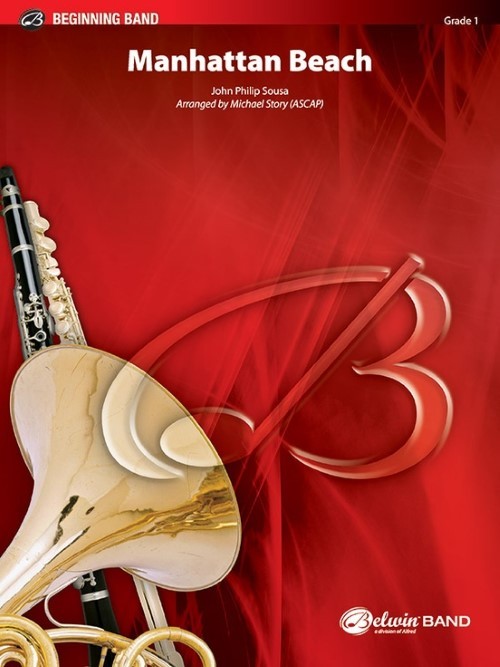 £55.50
£55.50Manhattan Beach (Concert Band - Score and Parts) - Sousa, John Philip - Story, Michael
Although John Philip Sousa is stereotyped as a march writer, he composed music in many forms. But, of course, it's his marches that have brought his name to millions of performers and listeners the world over. Of the hundreds of marches he wrote, many are still among the most performed of the medium. Michael Story has chosen this classic Sousa work and removed the technical difficulties so it can be enjoyed by even the youngest ensemble or band. Relish this music of the "March King"! Duration: 1.30
Estimated dispatch 7-14 working days
